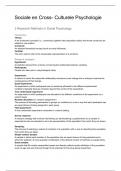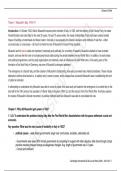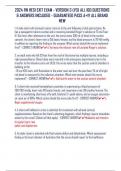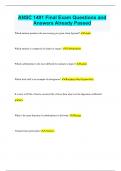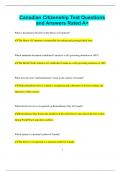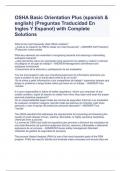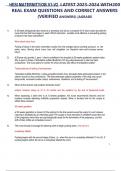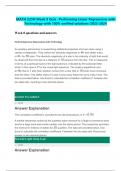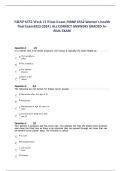Samenvatting
Summary Social and cross-cultural psychology / Samenvatting Sociale en cross-culturele psychologie (boek) RUG
An extensive summary of all key terms and their descriptions/explanations of chapters 2-8 and 10-15 of the book. Written for the course Social and cross-cultural psychology / Sociale en cross-culturele psychologie from the RUG.
[Meer zien]
